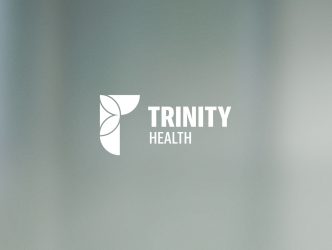Oral, head and neck cancers refer to many types of cancers, including those that arise in the nasal cavity, sinuses, lips, mouth, thyroid glands, salivary glands, throat, or larynx.
Signs and Symptoms
Should you experience any of the following symptoms of oral, head, and neck cancer, consult your primary care provider or one of Trinity’s ENT providers.
- A red or white spot in your mouth that doesn’t heal or increases in size
- Sore throat or swollen tonsil
- Changes in your voice
- A lump in your neck
- Earache
- Difficulty swallowing
Risk Factors
- Tobacco (including smokeless tobacco) and alcohol use are very high risk factors.
- People who use both tobacco and alcohol are at greater risk for developing these cancers than people who use either alone.
- HPV has recently remerged as having a connection to tonsil and base of tongue cancer, particularly in non-smokers and younger age groups.
Vaccine
Gardasil 9® is the only HPV vaccine available in the United States. It protects against nine strains of HPV, including strains that cause approximately 90 percent of all cervical cancers. Gardasil 9® also prevents most genital warts and other HPV-associated cancers, including over 60 percent of oropharyngeal cancers (8 of 10 of which are diagnosed in males).
The Centers for Disease Control and Prevention (CDC), the Advisory Committee on Immunization Practices (ACIP), and the North Dakota Department of Health (NDDoH) recommend routine HPV vaccination for all 11- to 12-year-old girls and boys. Catch-up vaccination is also recommended for females ages 13-26 and males ages 13-21. High risk males ages 22-26 should also be vaccinated. However, the immune response to the vaccine is most significant before age 15. Ideally, the vaccine should be given prior to having any sexual contact, when the patient could have been exposed to HPV. The vaccine is designed to offer lifelong protection against HPV.


